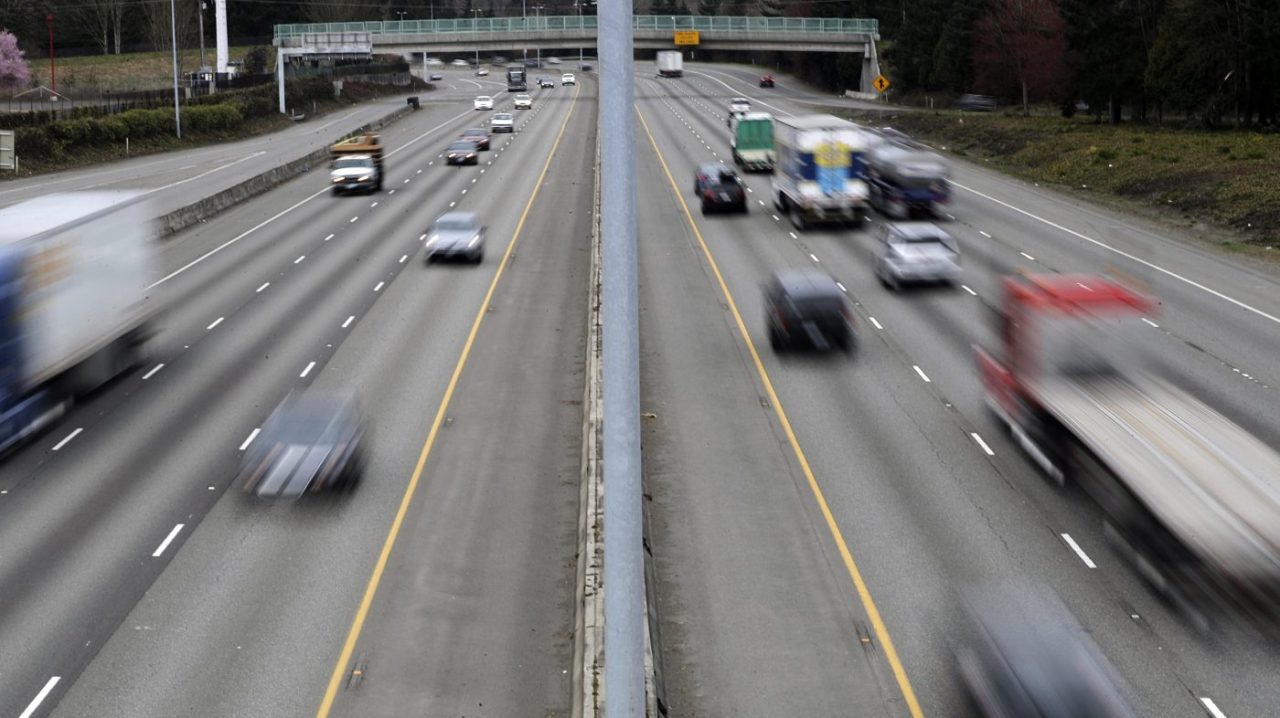A coalition of local officials from across the country are calling on Congress to oppose proposed legislation that will allow an increase in the length and weight of large trucks traveling on commercial highways.
…
“Longer and heavier trucks would cause significantly more damage to our transportation infrastructure, costing us billions of dollars that local government budgets simply cannot afford, compromising the very routes that American motorists use every day.”



This is simply Congress’ solution to a truck driver shortage … allow longer, heavier trailers that will create more toxic CO2 levels and disaster-level gridlocks in major cities.
Congress really aren’t the sharpest tools in the shed.
It’s tough on the roads, but less trucks (even if each one is producing slightly more CO2 than usual) would be a net decrease in CO2 overall. Drivers better be on point though, the extra momentum is nothing to play around with.
A single, heavier truck is going to be more efficient than two lighter trucks. And create less gridlock.
I don’t doubt that this has something to do with the driver shortage but that doesn’t mean this is a bad idea. In fact, it might be a good one.
I say we go all the way and use even smaller numbers of extremely large trucks, and put them on specialized roads made out of two metal rails. I bet the efficiency of these “rail roads” would be far far superior!
Railroads are great and we should encourage investment in those.
Yeah, they are pretty heavily used for anything that needs to go hub to hub on a ‘when it gets there’ schedule. However, I find it ironic that the majority of pro-train individuals complain heavily about cargo trains making the train system worse.
It’s not the cargo trains that make the system worse, it’s the prioritization of cargo over passenger rail along with lack of investment. If they spent even half the money on rail that they do on automobile roads we’d have one hell of a good rail system.
The highway system costs 200-400 billion dollars a year split between state and federal government.
Meanwhile Amtrak gets about 1.5 billion dollars from the federal government.
It’s pretty simple. More investment to build more robust and more connected lines. High traffic lines could be multiple rails wide, so faster passenger trains (which are time sensitive) can pass slower freight trains.
The issue with our rail infrastructure is that lines have been reduced over and over. Also, despite legally amtrak being given priority, they rarely do get it. Freight trains are often too long to be able to let them pass, so they are no longer legally required to get out of the way, because there isn’t an alternative for them.
Freight causes issues with the current system, but it is not required to cause issues. It only causes issues because we have chosen to not invest in improving things.
There’s the comment I was scrolling for.
Road wear scales as a cube of vehicle weight, so unless the heavier trucks are only 4.6% heavier than two trucks they’ll cause more damage to the roads while consuming less fuel and therefore producing less fuel tax revenue which is used to repair the roads.
Per axle.
This is a good thing
Yes, and unless that road weight per axle is only 4.6% higher it’s going to cause more road wear than just using two trucks.
And consuming less fuel is good, provided we find a way to pay for the increased repairs we’ll need.
The federal diesel tax rate is 24.4 cents/gallon and hasn’t been changed since 1993 [not indexed to inflation], a time period that’s seen other inflation raise prices by some 65-75%.
What do you mean? Their entire purpose is to funnel as much money as possible to the ruling class. This is the point.
Hey, they got some truck drivers to drive for negative pay already. It turns out they can’t convince the rest.